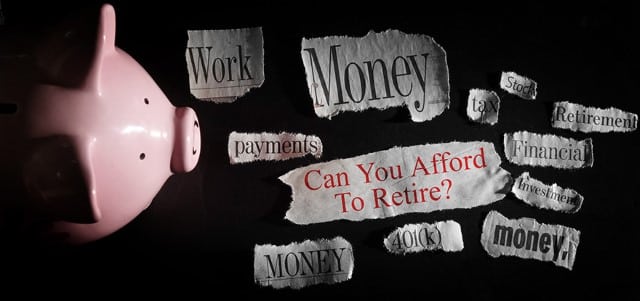When you’re self-employed in Florida—whether you’re running your own business, freelancing, or hustling gig work—retirement planning often takes a back seat. There’s no HR department setting up a 401(k) for you, no automatic payroll deductions going into a retirement account. But that doesn’t mean you should skip saving for your future.
In fact, if you work for yourself, you need to be even more intentional about building your retirement savings. The good news? You’ve got flexible and powerful tools available that can help you grow your wealth and lower your taxes at the same time.
Let’s break down the smartest ways for self-employed professionals in Florida to save for retirement—without overwhelming your cash flow.
1. Open a SEP IRA — Simple & Powerful
A SEP IRA (Simplified Employee Pension) is one of the easiest retirement accounts to set up if you’re self-employed.
Why it’s great:
• You can contribute up to 25% of your net earnings, up to a max of $69,000 (2024 limit).
• Tax-deductible contributions reduce your taxable income now.
• Investments grow tax-deferred.
Perfect for: Small business owners with no employees, freelancers with high earnings, and gig workers who want a simple plan.
Florida bonus tip: Since Florida has no state income tax, your federal tax savings go even further with a SEP IRA.
________________________________________
2. Consider a Solo 401(k) — Higher Limits, More Control
If you’re flying solo and want maximum flexibility, a Solo 401(k) might be your best bet.
Why it’s smart:
• You contribute as both the employer and the employee.
• For 2024, you can contribute:
o Up to $23,000 as an employee (or $30,500 if you’re over 50)
o Plus 25% of your self-employment income as the employer
o Totaling up to $69,000 (or $76,500 with catch-up)
Best for: High-earning freelancers and solo entrepreneurs.
Bonus: You can choose Roth contributions, giving you tax-free income in retirement.
________________________________________
3. Start a Roth IRA — Tax-Free Growth for the Future
A Roth IRA is great for those starting out or expecting to be in a higher tax bracket later in life.
Here’s why people love it:
• You contribute after-tax dollars now.
• Your money grows tax-free.
• You can withdraw in retirement without paying taxes on gains.
In 2024, you can contribute up to $7,000 ($8,000 if 50 or older).
Perfect for: Florida freelancers with moderate income or younger self-employed workers building long-term wealth.
Florida insight: Because you’re not paying state income tax now, Roth IRAs help you lock in tax-free income for later.
________________________________________
4. Automate Your Savings with a Monthly System
Self-employment means income can be unpredictable—but that’s no excuse to skip saving.
Set up automatic transfers from your business checking account to your retirement account every month—even if it’s just $100 to start.
Why this works:
• It creates consistency and discipline.
• It helps you “pay yourself first.”
• It reduces the temptation to spend what you should be saving.
Pro Tip: Open a separate savings account labeled “Retirement Contributions” to hold funds until you’re ready to deposit into your SEP, Solo 401(k), or IRA.
________________________________________
5. Use a Tax Refund or Big Paycheck to Boost Savings
Got a strong quarter in your business? Landed a big freelance project? Treat that extra income like a golden opportunity.
• Put a chunk of it straight into your retirement account.
• You’ll reduce your taxable income and grow your savings faster.
In Florida, with no state income tax, reinvesting your windfalls into retirement is an easy win.
________________________________________
6. Hire a Financial Advisor Who Understands Self-Employment
Self-employed finances are different. You need someone who understands:
• Variable income
• Tax deductions and write-offs
• Long-term planning for entrepreneurs
A fiduciary financial advisor can:
• Help you pick the right retirement accounts
• Create a custom plan based on your business and goals
• Keep you on track even when income is unpredictable
At Manna Wealth Management, we work with Florida-based freelancers, solopreneurs, and small business owners every day. We make retirement planning simple—even when your income isn’t.
________________________________________
7. Don’t Forget Health Savings Accounts (HSAs)
If you have a high-deductible health plan, an HSA gives you:
• Tax-deductible contributions
• Tax-free growth
• Tax-free withdrawals for medical expenses
And after age 65? You can use HSA funds for anything—just like a traditional IRA (you’ll just pay income tax on non-medical withdrawals).
Bonus: In 2024, individuals can contribute up to $4,150, and families can contribute $8,300.
________________________________________
Final Thoughts: Start Small, Think Big
You don’t need to max out your accounts on day one. What matters most is getting started and being consistent.
Whether you’re a graphic designer in Miami, a contractor in Tampa, or a gig worker juggling multiple jobs in Orlando—your future self will thank you for the steps you take today.
If you’d like help creating your retirement game plan, reach out to us at Manna Wealth Management. We’re here to make saving for the future feel simple, smart, and stress-free.


